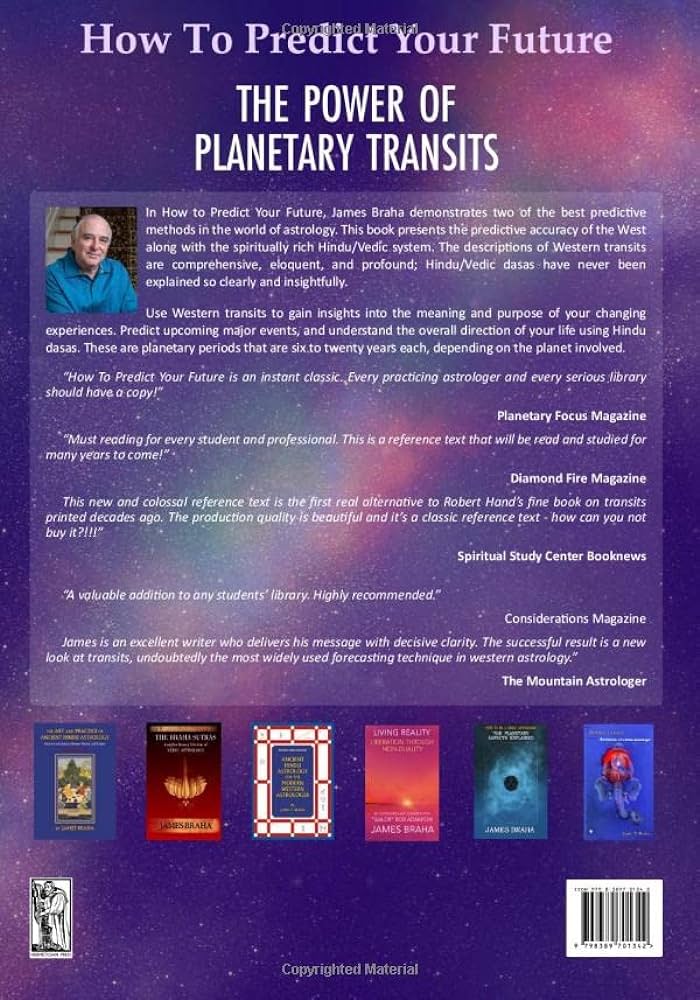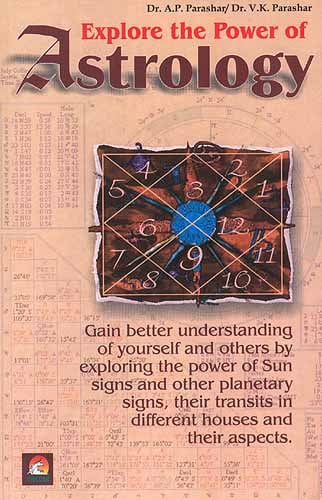Are you curious about whether astrology has the power to predict the future? In this article, we will delve into the fascinating world of astrology and explore its potential to forecast what lies ahead. From ancient civilizations to modern day enthusiasts, astrology has captured the imagination of countless individuals, offering insights into personality traits, relationships, and even upcoming events. Join us on this journey as we uncover the mysteries and uncover the truth behind the power of astrology to predict the future.
Understanding Astrology
Definition of astrology
Astrology is the belief system that posits a correlation between the positions and movements of celestial bodies, such as the planets and stars, and the events and personalities of individuals on Earth. It is often regarded as a pseudoscience and is deeply rooted in ancient civilizations. Astrologers analyze the unique combinations of planetary alignments at the moment of a person’s birth to interpret and make predictions about their future.
History of astrology
Astrology dates back thousands of years, with its origins traced to the ancient civilizations of Egypt, Mesopotamia, and Greece. The study of the stars and their influence on human life flourished during these times. Ancient astrologers observed the patterns and movements of celestial bodies, believing that these phenomena held profound meaning for both personal and societal events. Over the centuries, astrology has evolved and assimilated into various cultures, contributing to its diverse forms and interpretations.
Key principles of astrology
Astrology operates based on several key principles. The first is the concept of the zodiac, which divides the sky into twelve equal segments or signs, each representing specific personality traits and characteristics. Another fundamental principle is the belief in the interplay between the celestial bodies and earthly existence. Astrology suggests that the alignment and position of planets at birth can influence individual temperament, behavior, and even life events. Lastly, astrology acknowledges the cyclic nature of time with recurring patterns and cosmic cycles, playing a significant role in predictive techniques.
Astrological Chart and Planets
The astrological chart
The astrological chart, also known as a birth chart or natal chart, is a graphical representation of the celestial positions at a specific moment, typically the time of a person’s birth. The chart is divided into twelve equal sections, known as houses, each representing different aspects of life. Along with the houses, the chart displays the positions of the planets and other celestial objects, providing astrologers with a comprehensive snapshot of a person’s potential traits, strengths, and life events.
Role of planets in astrology
In astrology, the planets symbolize various archetypal energies and influences. Each planet represents different aspects of life and governs specific areas, such as emotions, communication, relationships, and career. The planets’ positions in the astrological chart provide insights into a person’s personality traits and life experiences, forming the foundation for astrological interpretations and predictions.
Meanings and interpretations of planets
Each planet in astrology carries a distinct significance and contributes to the overall personality portrait. For instance, the Sun represents one’s core identity, ego, and self-expression, while the Moon signifies emotions, instincts, and nurturing qualities. Other notable planets include Mercury, associated with communication and intellect; Venus, symbolizing love and beauty; Mars, representing drive, assertiveness, and passion; Jupiter, linked to opportunity and expansion; Saturn, symbolizing discipline and life lessons; and Pluto, associated with transformation and rebirth.

This image is property of Amazon.com.
Types of Astrology
Western astrology
Western astrology is the most widely practiced and recognized form of astrology in the Western world. It is based on the tropical zodiac, which divides the ecliptic into twelve equal signs, each encompassing 30 degrees. Western astrology places a strong emphasis on psychological interpretations and character analysis, seeking to understand an individual’s motivations, strengths, and challenges.
Vedic astrology
Vedic astrology, also known as Jyotish, originates from ancient India and is deeply rooted in Hindu philosophy and Vedic scriptures. It uses the sidereal zodiac, which considers the actual positions of the planets in relation to the fixed stars. Vedic astrology places great importance on predictive techniques and offers valuable insights into career, marriage, health, and spirituality. It also incorporates planetary periods known as dashas, providing a detailed timeline of a person’s life experiences.
Chinese astrology
Chinese astrology is a unique system that incorporates elements of astronomy, philosophy, and Chinese mythology. Unlike Western and Vedic astrology, which revolve around the movements of the planets, Chinese astrology is primarily based on a twelve-year cycle represented by various animals, known as the Chinese zodiac. Each animal sign is believed to influence a person’s traits, fortunes, and compatibility with others. Chinese astrology is frequently used to provide guidance and make predictions about one’s love life, career, and overall well-being.
Predictive Techniques
Transits
Transits are one of the key predictive techniques in astrology. They involve analyzing the current positions of the planets in relation to the birth chart. When a planet “transits” a specific house or makes significant aspects to planets in the birth chart, it can trigger events or influence certain areas of life. For example, a Jupiter transit to the career sector may bring opportunities and growth, while a Saturn transit to the relationships house may signify challenges or responsibilities.
Progressions
Progressions are another valuable predictive tool in astrology. They involve advancing the birth chart by a certain rate, typically one day representing one year of life. Progressed planets and points gradually change position and form new aspects, offering insights into the unfolding patterns and themes in an individual’s life. Progressions are particularly useful for understanding long-term trends, personal growth, and major life events.
Solar Returns
Solar Returns focus on the exact moment when the Sun returns to its natal position each year, marking a person’s birthday. By casting a chart for that moment, astrologers gain insights into the themes, challenges, and potential events for the coming year. Solar Returns provide a detailed picture of a person’s evolving circumstances and can help guide decisions and actions throughout the year.

This image is property of makesmepure.com.
Astrological Houses
Meaning and purpose of houses
The astrological houses represent different areas of life and provide context for the interpretation of a birth chart. Each of the twelve houses relates to specific aspects, such as relationships, career, home, creativity, and spirituality. These houses allow astrologers to assess the emphasis and dynamics of different areas in a person’s life, offering a more nuanced understanding of their experiences and potentials.
Interpretation of house placements
The interpretation of house placements involves analyzing which planets fall within specific houses and their aspects to other planets. For example, if Mars is located in the seventh house of relationships, it may indicate an assertive and passionate approach to partnerships. Moreover, aspects between the planets in different houses can reveal potential challenges or harmonious dynamics between different areas of life. The house placements and interplay of planets play a crucial role in understanding a person’s unique journey and how they may unfold.
Zodiac Signs and Personality Traits
Overview of zodiac signs
The zodiac signs, also known as the sun signs, represent the twelve divisions of the ecliptic, each occupying 30 degrees. Each zodiac sign carries distinct elemental qualities and specific traits that influence personality. The signs are as follows: Aries (March 21 – April 19), Taurus (April 20 – May 20), Gemini (May 21 – June 20), Cancer (June 21 – July 22), Leo (July 23 – August 22), Virgo (August 23 – September 22), Libra (September 23 – October 22), Scorpio (October 23 – November 21), Sagittarius (November 22 – December 21), Capricorn (December 22 – January 19), Aquarius (January 20 – February 18), and Pisces (February 19 – March 20).
Interpretation of sun signs
Interpreting the sun sign is the most common way people engage with astrology. The sun sign represents one’s core essence and is determined by the position of the Sun at the time of birth. Astrologers analyze the sign’s qualities, elements, and planetary rulers to gain insights into an individual’s personality, strengths, and areas for growth. While the sun sign is a significant part of one’s astrological profile, it is important to consider the entire birth chart for a more comprehensive understanding.
Personality traits associated with signs
Each zodiac sign exhibits a distinctive set of personality traits and characteristics due to its elemental nature. For instance, fire signs (Aries, Leo, Sagittarius) are known for their passion, enthusiasm, and assertiveness. Earth signs (Taurus, Virgo, Capricorn) are associated with practicality, reliability, and groundedness. Air signs (Gemini, Libra, Aquarius) are often described as sociable, communicative, and intellectually-oriented. Finally, water signs (Cancer, Scorpio, Pisces) are known for their emotional depth, intuition, and sensitivity. Understanding these essential qualities of the zodiac signs provides a valuable foundation for exploring individual strengths and potentials.

This image is property of Amazon.com.
The Role of Aspects
Definition and types of aspects
Aspects are the relationships formed between planets in a birth chart. They describe the angular separations between celestial bodies and highlight how they interact and influence one another. Aspects can be categorized into major and minor types based on the degree of separation and the perceived influence. Major aspects include the conjunction (0 degrees), opposition (180 degrees), square (90 degrees), trine (120 degrees), and sextile (60 degrees). Minor aspects consist of the semi-sextile (30 degrees) and quincunx (150 degrees), among others. Each aspect brings a unique blend of energies and can affect individuals differently.
Interpretation of aspect patterns
Astrological charts often reveal various aspect patterns, which are configurations formed by multiple planets and the aspects they create. These patterns can significantly influence an individual’s personality, experiences, and life themes. For example, a grand trine, consisting of three planets forming trine aspects, suggests ease and harmony within specific areas of life, while a T-square, involving a square aspect, may indicate challenges and dynamic tension that require resolution and growth. Analyzing these aspect patterns allows astrologers to delve deeper into the complexities of an individual’s chart and provide more detailed insights.
Astrology and Events in History
Examples of astrology predicting historical events
Throughout history, there have been notable instances in which astrology has purportedly predicted significant events. One well-known example is the prediction of the Great Fire of London in 1666 by astrologer William Lilly. His accurate forecast of a major disaster occurring during that year gained widespread notoriety. Additionally, astrology played a role in predicting the re-election of President Abraham Lincoln in 1864, the assassination of President John F. Kennedy in 1963, and the financial crises of the late 20th century. These examples showcase astrology’s purported ability to tap into cosmic influences and reveal insights about future occurrences.
Critiques and controversies
Despite its long history and widespread following, astrology faces criticism from skeptics and the scientific community. Many argue that astrology lacks empirical evidence and rigorous testing required for scientific validation. Critics claim that the seemingly accurate predictions made by astrologers can be attributed to coincidence, selective memory, or subjective interpretation. Moreover, astrology’s reliance on birth time accuracy and the consistent failure to replicate results in controlled studies have further fueled skepticism. Despite the controversies, astrology continues to thrive and captivate the interests of individuals seeking guidance, self-discovery, and understanding.

This image is property of cdn.exoticindia.com.
Astrological Predictions and Personal Readings
Using astrology for personal predictions
Astrological predictions offer individuals insights into potential life events and experiences. By analyzing the birth chart and current planetary transits, astrologers can provide personalized forecasts and timelines for various aspects of life, such as love, career, finances, and personal growth. The predictions can help individuals navigate decisions, prepare for challenges, and make the most of opportunities. Whether seeking guidance during significant life transitions or everyday matters, astrology offers a unique tool to gain clarity and direction.
Benefits and limitations of astrological readings
Astrological readings have several benefits for those who seek them. They offer a broader perspective on life and help individuals understand their innate qualities, strengths, and potential challenges. Astrology can also provide insights into relationship dynamics, compatibility, and timing for various events. However, it is crucial to recognize the limitations of astrological readings. While they offer guidance, they cannot determine or control one’s fate. Ultimately, an individual’s choices and free will play a significant role in shaping their life. Astrology should be approached as a tool for self-reflection and personal growth rather than a means to predict or control the future.
Scientific Perspectives and Criticism
Criticism of astrology from the scientific community
The scientific community has long criticized astrology for its lack of empirical evidence and scientific rigor. Astrology’s reliance on subjective interpretations, inconsistencies, and the absence of replicable results challenge its credibility as a valid scientific discipline. Scientists argue that astrology’s success in making accurate predictions is a result of the “Barnum Effect” or the tendency of individuals to accept vague statements as highly personal due to their general applicability. Furthermore, astrology’s failure to establish a mechanistic explanation for the alleged celestial influences undermines its scientific credibility.
Exploring the lack of empirical evidence
Astrology’s lack of empirical evidence raises questions about its validity and accuracy as a predictive system. While some studies have claimed to support astrology, they often suffer from methodological flaws or are unable to withstand rigorous scrutiny. Factors such as confirmation bias and selective memory can contribute to the perception of astrology’s accuracy. The absence of consistent, statistically significant results in controlled experimental conditions casts doubt on astrology’s claims. However, it is essential to acknowledge that astrology’s value lies in its subjective appeal, offering individuals a framework for self-reflection, guidance, and personal understanding.
In conclusion, astrology remains a widely practiced belief system that explores the correlation between celestial bodies and human experiences. Despite its categorization as a pseudoscience and the skepticism it faces from the scientific community, astrology continues to captivate the interests of millions worldwide. Whether used for personal guidance, self-discovery, or entertainment, astrology offers individuals a unique lens through which to understand themselves and navigate the complexities of life. It is a fascinating and multifaceted subject that spans cultures, historical events, and personal experiences, providing endless opportunities for exploration and interpretation.



